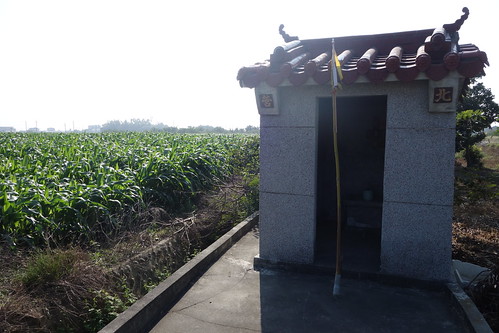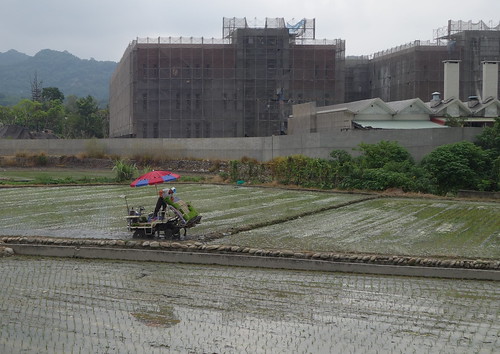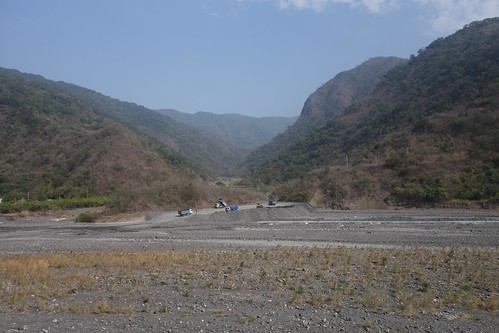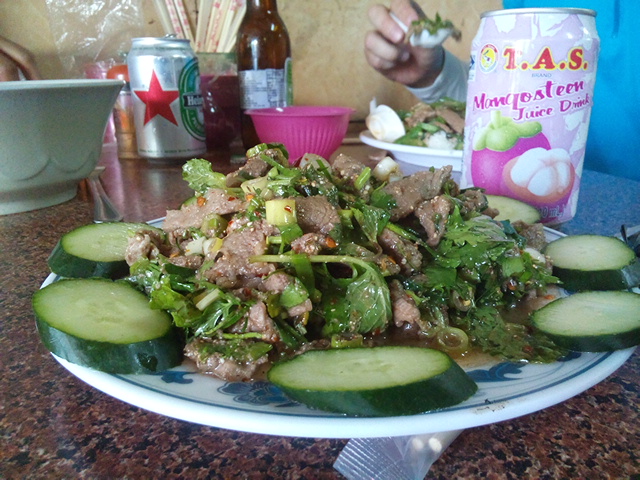Indonesian maids with their charges
I'm off biking for a few days this weekend. So expect light blogging....
Hugh White in the
Straits Times gives a primer in how not to write about the Taiwan issue. Usually when someone flatpeters like this in the international media, I serve it up John-the-Baptist style, as with
Bruce Gilley or
Charles Glaser. Its tiresome to keep ripping stuff for the same transcendentally obvious mistakes, as naive as if the writer has just discovered that Taiwan exists. But what else can one do? Onward!
Problem 1: Decontextualizing Taiwan
A common approach to wrongly analyzing the Taiwan problem is ripping Taiwan from its larger context of current Chinese expansionism. Observe how, in White's essay, no other nation but China, the US, and Taiwan appear. The closest White gets to mentioning another state is a vague comment about Taiwan seeking support from regional countries (except that it is not, of course, the Ma Administration has not built closer links to any regional power. It's an utter failure in that regard). There's no mention of Japan, for example, though as anyone who actually knows how to think about the problem knows, Japan is intimately related to Taiwan's problems with Chinese expansionism. Hence White's essay only "succeeds" because it proposes a timeless bubble universe that doesn't exist in reality.
The truth is that if geography is the mother of strategy, then Hugh White is an orphan sitting in the street with a begging bowl and a mewling whine. Taiwan in its ROC identity is part of the South China Sea claims. The ROC also claims the Senkakus, which are actually owned by Japan. Eventually China will begin claiming Okinawa, though it is usually silent on this dream (truly fanatical ROCers also speak wistfully about Chinese ownership of Okinawa). The key point is that in Chinese minds the claims to the Senkakus, Taiwan, and Okinawa are all interconnected. Should Taiwan actually sell out to China, this will only increase the pressure on Japan while giving China a far more advantageous position. No doubt China will begin eyeing Yoniguni and Ishigaki to the east of Taiwan, and islands off Philippines as well. And of course, China will pick up Dongsha and Taiping Island. What will that do for stability in the South China Sea?
Thus, as I always point out, selling Taiwan to China won't solve the problem, because the problem is Chinese expansionism, which Taiwan has no control over. Indeed, it will increase the chance of war between China and the US and Japan. Never mind what it would do to the Philippines, which also faces territorial threats from China. The US is committed by treaty to defending Philippines and Japan, it can't hide behind ambiguity. Annexing Taiwan to China thus simply pushes the sellout or fight choice back one level, to the Senkakus and Okinawa on the north and to Philippines on the south. If White seeks to avoid a general war between China and the US, he is going about it precisely the wrong way.
Anyone who looked at a map could figure this out. Why couldn't White?
Problem 2: Patronizing Taiwan
That is why Taiwan and its friends and admirers everywhere have to think very carefully about how to handle the dangerous period that lies ahead and to consider what is ultimately in the best interest of the Taiwanese people, as well as the rest of us. The conclusions will be uncomfortable, but inescapable.
One hears this silliness from time to time: advice to us poor foolish denizens of Taiwan to think carefully. Think! Because god knows we've never thought about the China problem before.
Gosh, thanks Hugh! Without this sage advice, we might never have realized there is a China threat which could result in a general war.
Problem 3: Directly incorporating Chinese propaganda tropes
In the 1990s, after Taiwan became a vigorous democracy, presidents Lee Teng-hui and Chen Shui-bian started to push the boundaries of this status quo, seeking a more normal place for Taiwan in the international community. This infuriated Beijing and escalated tensions between China and America.
Two interrelated tropes -- Taiwan provokes China and it escalates tensions. As I've remarked countless times, tensions are caused by China, which manipulates tensions as a foreign policy tool to influence Washington's foreign policymaking and to transfer tension from the Beijing-DC relationship to the Taipei-DC relationship. Understanding this is
basic to understanding the deployment of "tensions" in the Taiwan Strait. Or elsewhere.
What's disappearing? Oh yeah, China "pushing the boundaries of this status quo" via a military buildup and forging links with the pro-China parties in Taiwan. Lee and Chen were
pushing back against this move, against China's attempts to reduce Taiwan's international space.
President Xi Jinping seems increasingly impatient to resolve what it sees as the last vestige of China's centuries of humiliation
No shit. White seems to think China has endured absolute
centuries of humiliation. Even the PRC claims only a modest century of humiliation, which as we all know, is an expansionist reconstruction of history (
here). The whole idea of "humiliation" in its modern form is Chinese propaganda. Writers should stop regurgitating it.
More subtle is the common pro-China trope in which the writer speaks for Beijing and informs us that Beijing's motivation is avenging humiliation, as if China and its leaders were unaware it is engaging in a naked territorial grab. Beijing knows perfectly well what it is doing. The common people, deluded by decades of propaganda, may understand things that way, but elites know they are engaging in territorial expansion.
And China was happy to replace sticks with carrots in dealing with Taipei, apparently expecting that economic integration would eventually pave the way to political reunification
would lead inexorably to precisely the political reunification that Beijing so clearly wants and expects.
But of course, what is happening is not
reunification but
annexation. "Reunification" is pro-Beijing propaganda.
Academics should adopt more neutral language -- which even the international media has done. "Reunification" seldom appears in the international media now, "unification" is more typical. I don't expect him to use an accurate description of the actual state of affairs such as "annexation". I suppose it's too much to hope that poli sci and strategy types speak truth. Otherwise, how could they find employment in the government?
Problem 4: Seduced by the allure of the "hard" choice
No one visiting Taipei can fail to be impressed by what the Taiwanese have achieved in recent decades, not just economically but also politically, socially and culturally. But the harsh reality is that no country is going to sacrifice its relations with China in order to help Taiwan preserve the status quo.
Pieces like White's which advocate that Taiwan sell out to China are often presented with a kind of wistful this-hurts-me-more-than-you regret. The writer presents himself (always a male, of course, females seem to be less afflicted with such testosterone delusions) as making the tough choice, the manly choice, the hard choice. Because, as we all know, the greatness of a realpolitik policy is measured by the number of one's friends its betrays.
The "hard" choice appeals to one's sense of one's own toughness. "Hey, I can make the tough call! Look how manly I am! I can betray millions of my own friends and allies!" The reality is that
the sell-out is the easy choice. The hard choice is the quiet, long-term effort at alliance building, at awareness raising, at humble day-to-day slogging on behalf of a worthy ally. At changing the world, one mind at a time, one policy at a time, one administration at a time.
Resistance is the real hard choice, Hugh.
Problem 5: Errors of fact and interpretation
But the stark reality is that these days, there is not much the US can realistically do to help Taipei stand up to serious pressure from Beijing.
Back in 1996 when they last went toe-to-toe over Taiwan, the US could simply send a couple of aircraft carriers into the area to force China to back off. Today the balance of power is vastly different: China can sink the carriers, and their economies are so intertwined that trade sanctions of the kind the US used against Russia recently are simply unthinkable.
Writers producing this frequently resort to rhetorical tropes like "harsh" and "stark" to describe reality and choices. They present the writer as one able to make tough choices, unlike those squishy-soft Taiwanese (you know, the ones who, unlike White, resist rather than accommodate Chinese expansionism, require all their sons to enter the military, and occupy legislatures when they are pissed off). This acts as a petri dish for breeding false dichotomies, which of course is its rhetorical function.
Note that White says that there is little the US could do. LOL. There are many things the US can do short of the military intervention he actually presents (which was not toe-to-toe in any case, the carriers loitered far from the island, just a gentle reminder). It's not only a choice between military intervention and not intervening in support of Taiwan, except in the case of a hot war.
If "serious pressure" -- whatever that is -- is put on Taiwan, the US can respond by upgrading weapons sales and military contacts. By arranging the sale of Japanese subs to Taiwan. By upgrading its treaty and legal situation with respect to Taiwan. By moving military assets closer to the island. By sending cabinet officials to visit. By making loans and other commercial engagements. By organizing support from and for other regional actors. By a wide range of gestures both symbolic and real. Even by landing two F-18s in Tainan...
The US may or may not choose to do such things. But it always has the ability to.
Rhetorical constructions above and below are examples of how White's essay creates a bubble universe with no relation to reality.
In the past few years, [Taiwan] has slipped quietly into the background as tensions in the East China Sea and South China Sea have posed more urgent threats to regional peace and stability.
White has failed to connect all the dots with this opening comment -- an outcome of his relentless construction of a bubble world. Taiwan is intimately connected to both these areas (d'oh!). One reason the Senkakus and the South China Sea have become more urgent in recent years is that the election of Ma Ying-jeou has enabled Beijing to reduce its tension-mongering with Taiwan and ramp up tensions elsewhere. Tensions have not fallen, they have merely shifted, and increased.
In the 1990s, after Taiwan became a vigorous democracy, presidents Lee Teng-hui and Chen Shui-bian started to push the boundaries of this status quo, seeking a more normal place for Taiwan in the international community. This infuriated Beijing and escalated tensions between China and America.
These tensions eased when, in 2003, then US President George W. Bush made it clear that the US would not support any Taiwanese push to change the status quo.
Hahaha. This is simply wrong, more of the same bubble universe that views tension through the lens of what Washington is doing. Here, I'll quote the awesome Mark Harrison
in 2005:
The months since the re-election of Taiwanese president Chen Shui-bian have seen a rise in tensions across the Taiwan Straits. The softer line which the Chinese government had adopted during Chen’s previous term has been seen to fail with the election result, and there has been a noticible shift in policy and much stronger rhetoric coming out of China.
Anyone could find this out using Google or searching
tension on my blog.
This reality does not yet seem to have been understood in Taiwan. The overwhelming desire on the island is to preserve its democracy and avoid reunification by preserving the status quo.
Read the piece carefully: White's essay contains many claims, not a single one which is sourced, evidenced, or given concrete information. What is his source for "this reality does not seem to have been understood in Taiwan?" It's rather strange to think that the military and economic balance between China and the US is not "understood" by millions of people who live inside it everyday, and in a society where every male has to serve in the Army and hundreds of thousands work in China and export to the US. This may come as a shock for White, but perhaps the people who live this problem every day might actually know something about it.
What is the "overwhelming desire" of Taiwanese? It's for independence and international recognition, as poll after poll shows. People support the status quo precisely because it is a watered-down form of independence. They are not avoiding "reunification" but "annexation". White's claim is not wrong on its face, but it certainly requires explanation.
Problem 6: It's Taiwan's fault.
But now old questions about Taiwan's longer-term future are re-emerging, and so are old fears that differences over Taiwan could rupture United States-China relations and drive Asia into a major crisis.
Taiwan could rupture US-China relations? Taiwan is one actor -- this may seem incredible, you might want to sit down for this: all the actors in these relationships have their own agency. Poor put-upon Beijing is not the helpless victim of Taiwan's desire to remain free and independent. If relations between China and the US rupture, it is because Beijing or Washington has chosen for them to rupture. Taiwan is not the cause of the problem, because the problem is Chinese expansionism, not Taiwanese resistance. Note that this observation totally vanishes from White's piece. This is another example how people like White who assign agency to China in all other areas of its territorial expansion (
for example) take a totally different view of Chinese expansionism when it concerns Taiwan. This attitude hinders both understanding and policy-making.
There's not much more one can say except: see ya on Tuesday.
UPDATE:
Michal Thim continues the roasting of White
ALSO: Hugh White rebutted by
J Michael Cole in the National Interest
AND THIS: In
NASDAQ
_______________
Daily Links:
_______________________
[Taiwan] Don't miss the comments below! And check out my blog and its sidebars for events, links to previous posts and picture posts, and scores of links to other Taiwan blogs and forums!










